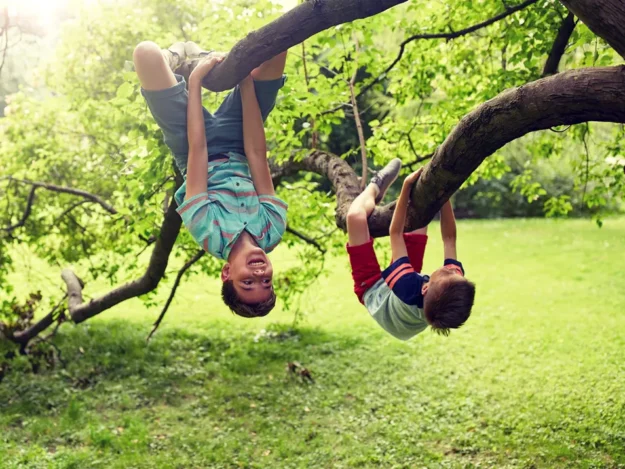
Our Approach
Our organisation aims to provide young people with bespoke packages of care. We have developed our service model over a number of years to become innovative in our delivery.
We provide homely, nurturing environments managed by highly experienced and qualified managers. Our homes are staffed with dynamic staff teams who bring a wealth of knowledge and training to the delivery of the individual care plans of our young people. Our partnership with the Northern School of Child and Adolescent Psychotherapy Clinical Service, which is a part of the Leeds and York Partnership Foundation NHS Trust, is based on the principle of integration: combining education/training, clinical practice, research and evaluation into all areas of residential care. The outcome is outstanding residential care informed by a psychoanalytically informed observed approach.
Young people’s views, wishes and feelings
Consultation with young people is at the heart of all the work we do and the decisions we make about the child’s life are made with their involvement. We do this through holding regular house meetings, one to one sessions with the child, key worker sessions and carrying out focus work. We tailor such communication to individual young people’s needs, level of understanding and cognitive ability. We ask young people to make decisions about their individual care plan and how they would like to develop this in partnership with us and others around them that are involved in their life and important to them, for example their parents.
We provide a nurturing and supportive environment which engages positively with young people and makes every effort to involve the wider system around them to ensure their needs are met. Within this we take account of individuality, gender, religion, ethnic origin, cultural/linguistic background, nationality, spirituality, disability, sexual orientation or any diversity ensuring as far as possible that young people do not feel marginalised or discriminated against, including as a result of their looked after status.

Enjoyment and achievement
In line with our aims and objectives to provide our young people with a range of diverse learning experiences, there is an expectation that all staff will organise and participate in a range of activities and holidays which provide opportunities for positive and trusting relationship building.
Our staff teams are proactive in recognising any achievements made by the young people and celebrate these appropriately with them. This is not limited to educational achievements, but will encompass learning and development holistically for a child.
Staff are responsible for ensuring such occasions are documented and form part of a child’s journey file, enabling young people to clearly see what they have achieved and improve their self-esteem.
Positive relationships
We work hard to build constructive and warm relationships with young people. This helps to actively promote positive behaviour and provides the foundations for managing negative behaviour. We aim to have a consistent team of care staff around the child and try to reduce the impact of people leaving/moving homes as much as possible as we recognise the detrimental effect this can have on children with attachment difficulties. We always take into consideration the views and relationships of young people prior to any staff changes.
We work with all appropriate outside agencies involved with the child to ensure any offending or socially unacceptable behaviour is addressed. The young people will be supported to understand and build friendships with other young people and will be able to spend time with them if and when appropriate due to their care and risk plan, age and level of understanding.
Protection of young people
Dove Adolescent Services has a strong culture surrounding safeguarding issues where staff feel empowered and confident in risk management and safeguarding. Staff are clear about their roles to protect young people and the need to communicate effectively with the ‘team around the child’ to create excellent multi-agency relationships.
All of our care staff receive training on how to recognise and be alert to any signs that a young person may be at risk of harm or abuse, this is refreshed annually. Each young person’s care risk management plan will detail how we intend to safeguard young people from risks and young people must be clear about what this looks like both within and outside the home, and the various risks posed from all types of relationships they have.

Education
Dove Adolescent Services are committed to individualised learning in order to meet the diverse needs of the young people who are with us. Staff will be equipped with the knowledge and skills to understand how schools’ function and must be aware of Education Health Care Plans (EHCP) as well as being aware of the level of delegated decision making in relation to the young person’s education. All our homes have a strong ethos of valuing education and support the young people to learn via a variety of pathways.
Young people who are post 16 will be supported and encouraged to stay in full time education, start an apprenticeship or work whilst in part time education or training. Where a young person is excluded from school, staff will provide support for them to obtain/attend access to appropriate educational and training support and where appropriate reintegration into school.
Therapeutic Care Model
Dove Adolescent Care have partnered with the Northern School of Child and Adolescent Psychotherapy Clinical Service, which is a part of the Leeds and York Partnership Foundation NHS Trust, to form a specialist model of practice and approach to residential care. The partnership is based on the principle of integration: integrating education/training, clinical practice, research and evaluation into all areas of residential care. The outcome is ‘outstanding’ residential care informed by a psychoanalytically informed observational approach.
This partnership aims to ensure managers, staff teams and young people are fully supported in understanding therapeutic health needs of our young people and how this in turn can directly impact on the staff teams who work within this often difficult and traumatic environment. In addition to this psychoanalytically informed approach, we still encourage young people and promote involvement with additional health care services. This will include partnership working with CAMHS, counselling services and other relevant health care professionals.
Leadership and Management
In line with company’s ethos to provide quality care, the responsibilities and accountabilities relating to the leadership and management of each home lies with the registered manager and responsible individual. They play a key role in enabling the home to deliver quality care and are responsible for ensuring the Continuous Professional Development (CPD) of the staff and themselves ensuring the home has enough capacity to ensure that the Quality Standards are met for each young person. In order to be able to meet this, the registered person will be aware of current research and developments in relation to best practice and enable their staff team to be aware of pertinent research and developments. This is achieved by allocating part of every team meeting to training and development issues, staff will be actively involved in the research and delivery of this.
The registered manager aims to lead a team which delivers care that supports the ethos outcomes and approaches set out within the homes statement of purpose and function. They will play a key role in shaping and developing a culture of high aspiration for young people. They will support staff to be ambitious for the young people they are working with to develop their emotional and functional resilience to achieve their full potential. This will include, them being empowered to work in partnership with the wider team around the child enabling support networks to be established and built upon to support future transitions. This will also include the ability for staff members to advocate on behalf of the young people challenging in a professional manner with the young person’s needs at the forefront.